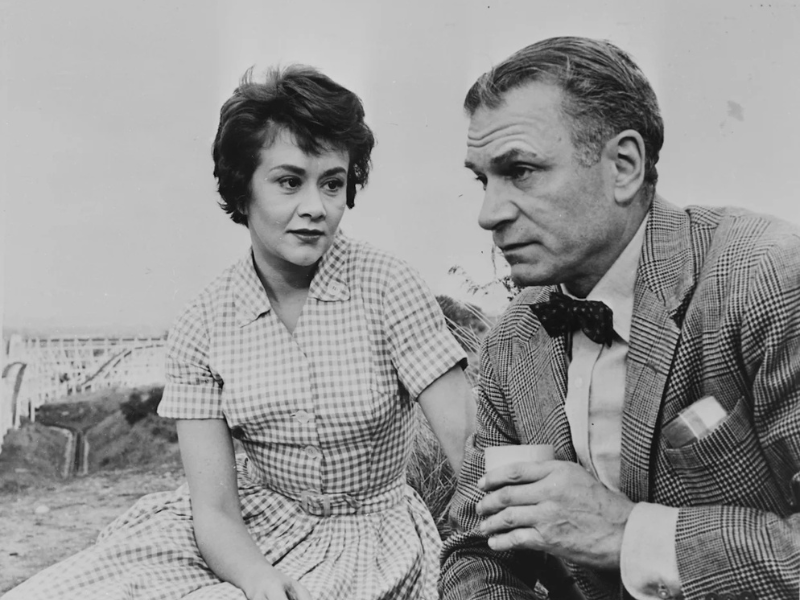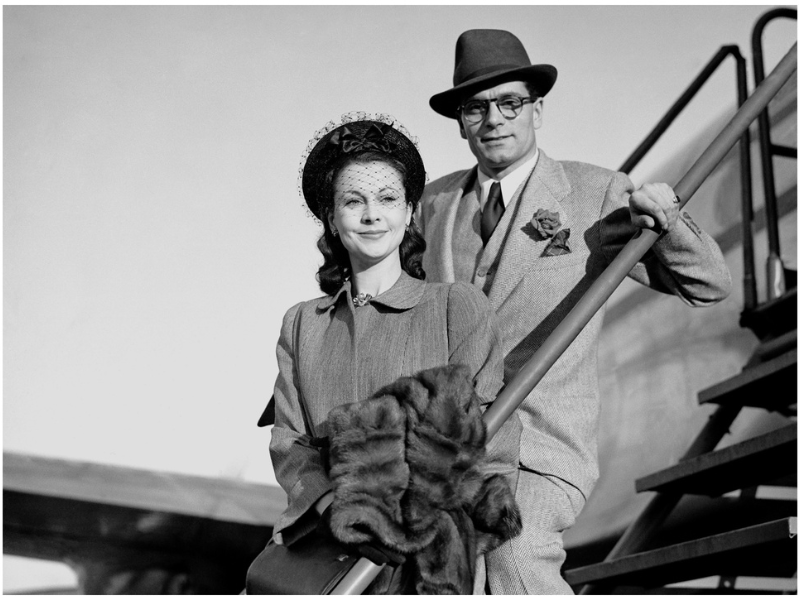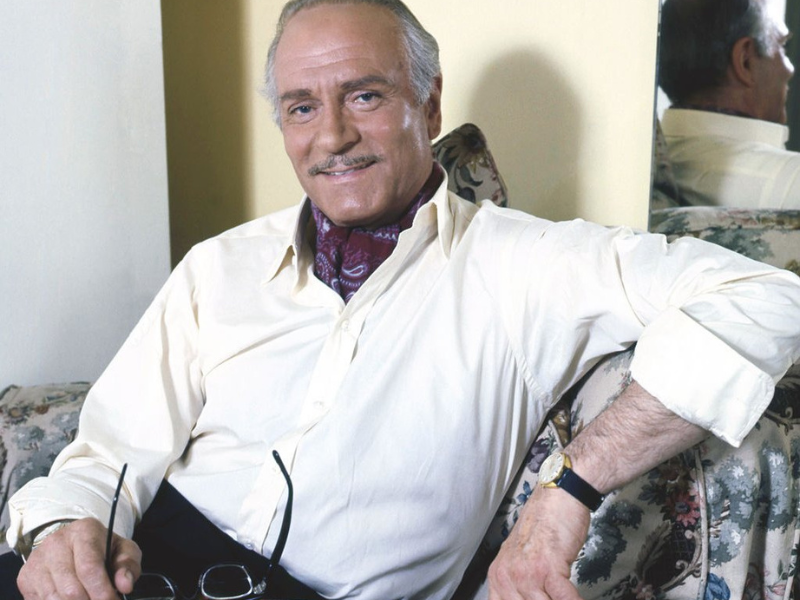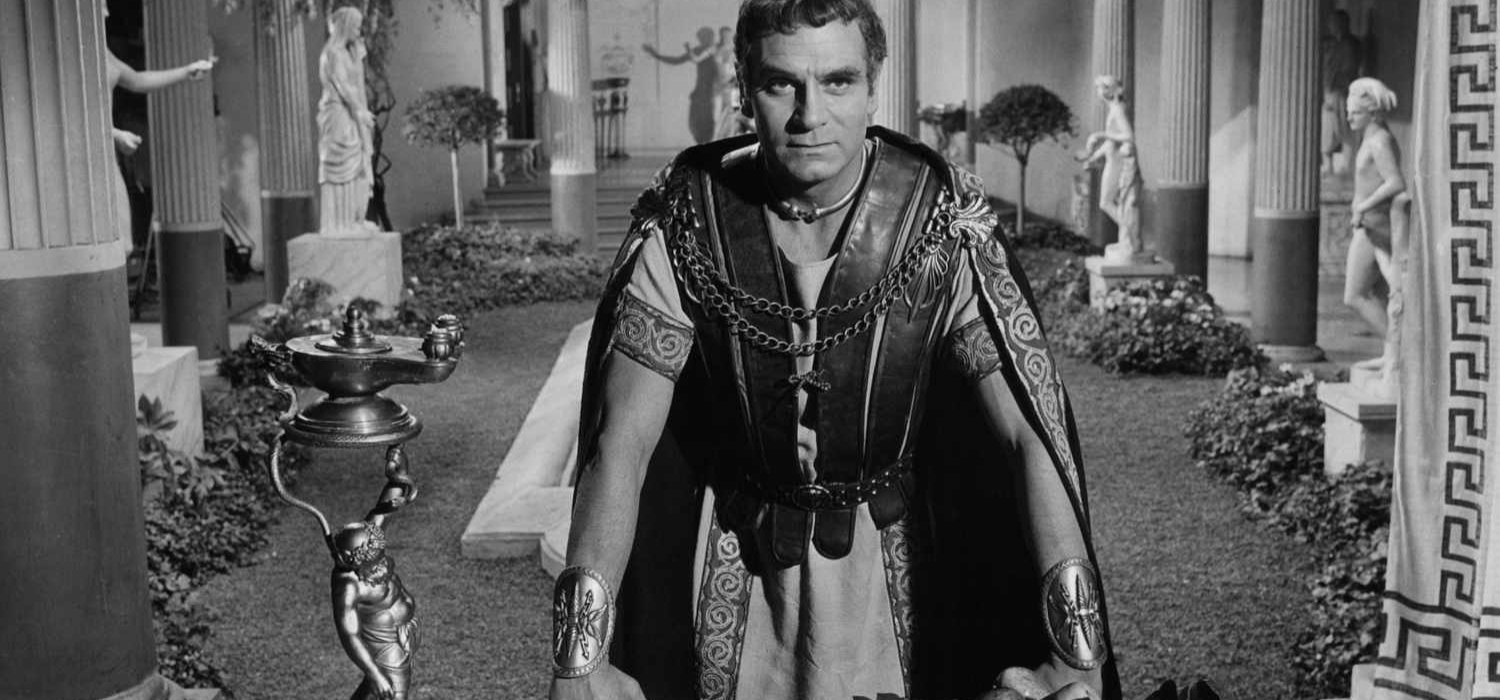Introduction: The Legend of Sir Laurence Olivier
When the conversation turns to the greatest actors of the 20th century, one name consistently dominates the stage and screen: Sir Laurence Olivier. He was more than just a performer; he was a cultural force who redefined acting for both theatre and cinema. Known for his commanding stage presence, meticulous technique, and magnetic screen charisma, Olivier is remembered as the ultimate embodiment of artistic excellence. His career, spanning six decades, remains a masterclass in the art of performance and a standard by which actors continue to be measured.
Early Life and Formative Years
Laurence Kerr Olivier was born on May 22, 1907, in Dorking, Surrey, into a middle-class family with strong Anglican values. His father, a clergyman, instilled discipline and tradition, while his early schooling sparked an interest in public speaking and performance. Olivier’s introduction to acting began at school plays, where his natural flair for dramatic delivery and stage command became undeniable. By the time he entered the Central School of Speech Training and Dramatic Art, he was already regarded as a promising young talent.
Training at Drama School
Olivier’s education in drama shaped the foundations of his acting style. Unlike many of his contemporaries, who leaned towards naturalism, Olivier embraced a mix of classic technique and emotional intensity. He honed his diction, physicality, and projection—tools that would later make him one of the most powerful Shakespearean actors of all time. His drama school years also introduced him to the works of William Shakespeare, planting the seeds for what would become his lifelong passion.
Breaking into the Theatre Scene
After completing his training, Olivier quickly found his way into repertory theatre. His earliest performances were in provincial companies, where he learned the discipline of performing night after night. This period was not glamorous, but it provided Olivier with an invaluable education in versatility, as he performed a wide range of roles—from romantic leads to villains and comic parts. These formative years built his resilience and sharpened his instincts, traits that would define his later career.
Shakespeare: The Eternal Companion
Perhaps no actor in modern history has been more closely associated with Shakespeare than Laurence Olivier. His mastery of the Bard’s works was both technical and spiritual. Olivier had an uncanny ability to make Shakespeare’s complex language accessible to audiences. His portrayals of Hamlet, Othello, Henry V, and Richard III remain iconic not only on stage but also on film. Olivier’s Shakespeare was not a museum piece—it was alive, urgent, and deeply human.
The Leap to Cinema
In the 1930s, Olivier began transitioning from stage to film. At first, he was skeptical about cinema, regarding it as inferior to theatre. However, once he embraced the medium, he revolutionized it. Unlike stage actors who struggled to adapt to the subtlety of the camera, Olivier mastered the art of modulation. He realized that screen acting demanded a restrained intensity rather than grand gestures. His early films, such as Wuthering Heights (1939), proved his ability to connect with audiences beyond the theatre.

Hollywood Recognition
Olivier’s breakout in Hollywood came with his role as Heathcliff in Wuthering Heights. His brooding, magnetic performance made him an international star. The intensity he brought to the character helped popularize the tragic hero archetype in American cinema. Following this, films like Rebecca (1940) and Pride and Prejudice (1940) further solidified his reputation as a leading man. Unlike many British actors of his generation, Olivier successfully crossed the Atlantic, becoming equally admired in both the UK and the US.
Directorial Brilliance
Olivier was not only an actor; he was also an innovative director. His film adaptations of Shakespeare—Henry V (1944), Hamlet (1948), and Richard III (1955)—were groundbreaking. They brought Shakespeare to the big screen in a way that appealed to both academics and general audiences. Henry V, released during World War II, was particularly powerful. It served as a patriotic morale booster, with Olivier’s rousing performance inspiring audiences during Britain’s darkest hour. His Hamlet went on to win the Academy Award for Best Picture, the first time a Shakespeare adaptation achieved such recognition.
The Olivier Technique: Style and Substance
Olivier’s acting style was marked by precision and physicality. He believed in transforming himself completely for each role—changing his voice, posture, and even facial expressions. His willingness to use makeup and prosthetics to enhance his transformations was ahead of his time. For instance, in Richard III, he donned a hunchback, a limp, and a sharp nasal tone to fully embody the role. He famously said that once he discovered a character’s physical “hook,” the performance would fall into place.
A Rivalry with Gielgud and Richardson
Olivier’s career cannot be discussed without mentioning his contemporaries Sir John Gielgud and Sir Ralph Richardson. Together, they formed a golden trio of British acting. Each brought something unique to the craft—Gielgud with his elegance and voice, Richardson with his wit and intelligence, and Olivier with his raw power and transformation. Their friendly rivalry pushed each of them to greater heights and created a golden age of British theatre.
Personal Life and Scandals
Behind the stage lights, Olivier’s life was filled with drama of its own. His marriage to actress Vivien Leigh, best known for Gone with the Wind, was one of the most talked-about unions of its time. The couple was celebrated as a glamorous pair of international stars, but their relationship was marred by Leigh’s struggles with mental health. Olivier’s later marriages, including to actress Joan Plowright, painted a more stable picture, though his private life was always under the scrutiny of the public eye.
War Years and National Service
World War II profoundly impacted Olivier’s life and career. Although he initially sought active duty, his value as a performer was considered greater for morale. He contributed by making patriotic films and performing for troops. His Henry V was particularly significant during this time, as it was both a celebration of Shakespeare and a rallying cry for Britain’s resilience.
Awards and Accolades
Olivier’s contributions to stage and screen earned him countless accolades. He was knighted in 1947, made a life peer in 1970, and awarded numerous Academy Awards, BAFTAs, and Golden Globes. He remains one of the most decorated actors in history. His legacy is cemented not just in awards but also in the annual Laurence Olivier Awards, Britain’s most prestigious theatre honors, named after him.
Mid-Career Triumphs
By the 1950s, Sir Laurence Olivier had firmly established himself as a dominant figure in theatre and cinema. This period marked a transition from being just a star performer to becoming a leader, director, and mentor. His mid-career was defined by an extraordinary balance between traditional stagecraft and the evolving demands of modern cinema. Olivier consistently pushed boundaries, ensuring his artistry remained relevant in a rapidly changing cultural landscape.
Masterpieces of the 1950s and 1960s
Olivier’s direction and performances in Richard III (1955) and The Prince and the Showgirl (1957) remain landmarks. Richard III, in particular, showcased Olivier at the peak of his craft, combining theatrical grandeur with cinematic innovation. His sly, menacing portrayal of Shakespeare’s villain was not only captivating but also deeply unsettling, earning admiration across the globe.
The 1960s brought further success with roles in Spartacus (1960), where he played the cunning Roman general Crassus opposite Kirk Douglas. His chilling performance proved his adaptability, demonstrating that he could embody both Shakespearean kings and Hollywood antagonists with equal brilliance.

Founding of the National Theatre
One of Olivier’s most lasting contributions was his role in founding and shaping the Royal National Theatre in London. As its first artistic director in 1963, he transformed the institution into a world-class stage for innovation and excellence. He carefully selected repertory works, balanced Shakespeare with contemporary playwrights, and nurtured young talent. Under his leadership, the National Theatre became a cornerstone of British culture, ensuring theatre was accessible to wider audiences.
Olivier’s tenure was not without controversy. Known for his perfectionism, he could be demanding, even intimidating, to those around him. Yet his vision elevated the institution and laid the groundwork for what it is today—one of the most respected theatres in the world.
A Teacher and Mentor
Beyond his own performances, Olivier took pride in mentoring the next generation of actors. Young talents such as Anthony Hopkins, Derek Jacobi, and Ian McKellen benefitted from his guidance. His rigorous approach to diction, movement, and psychological depth inspired countless performers. Olivier believed that the craft of acting required discipline and dedication, and he modeled this philosophy in every rehearsal and production he led.
Style Evolution: Adapting with Time
While Olivier’s earlier years were marked by theatrical precision and physical transformation, his later style grew subtler. The rise of naturalism and method acting challenged classical actors, but Olivier found ways to adapt without losing his unique artistry. His willingness to evolve made him relevant across decades, even as audiences’ expectations of acting shifted dramatically.
For instance, in Term of Trial (1962) and Sleuth (1972), Olivier embraced understated nuance, demonstrating his range. He may not have adopted Method techniques directly, but his ability to capture emotional truth while maintaining technical control was proof of his genius.
Olivier vs. the Method
The rise of American Method actors like Marlon Brando and Montgomery Clift in the mid-20th century posed a cultural shift. Many critics speculated whether Olivier’s classical approach would be overshadowed by this new, emotionally raw style. Olivier himself was skeptical of Method acting, famously remarking to Dustin Hoffman during the filming of Marathon Man (1976), “My dear boy, why don’t you just try acting?”
Despite this playful jab, Olivier respected talent when he saw it, and his collaboration with Method actors produced memorable performances. Rather than clashing, Olivier’s technical mastery and their emotional intensity often created dynamic contrasts on screen.
Health Struggles and Resilience
By the late 1960s, Olivier began facing serious health challenges, including pleurisy, pneumonia, and later cancer. Yet he refused to let illness end his career. Even while battling ailments, he continued performing, directing, and mentoring. His resilience became as legendary as his artistry, showing an indomitable spirit dedicated to the craft.
Iconic Collaborations
Throughout his career, Olivier worked with some of the most celebrated actors and directors of his time. His collaborations with Marilyn Monroe in The Prince and the Showgirl, with Gregory Peck in The Boys from Brazil (1978), and with contemporary British stars at the National Theatre demonstrated his versatility. He was both a towering figure and a generous ensemble player, capable of elevating everyone around him.
Later Cinematic Roles
Olivier’s later years were filled with memorable film performances. In Sleuth (1972), opposite Michael Caine, he delivered a witty and layered performance that earned him another Academy Award nomination. His role in Marathon Man (1976), as the sadistic Nazi dentist Dr. Szell, remains one of his most chilling portrayals. Even as age and illness slowed him, Olivier never lost his ability to mesmerize audiences.
Awards and Global Recognition
By the 1970s, Olivier had achieved nearly every accolade possible in theatre and film. In addition to his Academy Award wins and nominations, he received BAFTAs, Emmys, and a knighthood. In 1970, he was elevated to the peerage as Baron Olivier of Brighton, becoming the first actor to receive such an honor. The creation of the Laurence Olivier Awards in 1976 further cemented his name in theatrical history, ensuring that future generations would forever associate excellence in performance with his legacy.
A Legacy of Innovation and Tradition
The beauty of Olivier’s career lies in his ability to bridge tradition with innovation. He honored Shakespeare while reimagining him for modern audiences. He led institutions while nurturing future stars. He resisted trends like Method acting but proved adaptable enough to remain relevant. Above all, Olivier embodied the belief that acting was both an art and a responsibility.

The Final Years of a Legend
As the 1970s and 1980s unfolded, Sir Laurence Olivier faced the reality of declining health. His once boundless energy was curtailed by recurring illnesses, including bouts of cancer and respiratory complications. Yet, true to his indomitable spirit, Olivier refused to retire from the craft that had defined his life. Even in frailty, he sought opportunities to perform, leaving audiences with unforgettable final impressions of his artistry.
Olivier’s Final Film Appearances
Olivier’s last cinematic roles were marked by dignity and wisdom. Films such as A Little Romance (1979), where he played a charming yet eccentric Frenchman, showcased his lighter side. In The Bounty (1984), he portrayed Admiral Hood with authority and nuance. His role in Sky Captain and the World of Tomorrow (2004), though posthumous through digital recreation, reflected the enduring fascination with his presence on screen.
One of his last great performances was as Neil Diamond’s father in The Jazz Singer (1980). Despite mixed reviews for the film itself, Olivier’s performance was widely praised, proving once again that he could elevate even flawed material through sheer talent.
Personal Life and Relationships
Behind the stage lights and accolades, Olivier’s personal life was complex. He was married four times, most famously to actress Vivien Leigh. Their marriage, which lasted from 1940 to 1960, was marked by passion, artistic collaboration, and turbulence. Leigh’s struggles with mental health placed immense strain on their relationship, but together they produced some of the most iconic performances of the 20th century.
After their divorce, Olivier found stability with actress Joan Plowright, with whom he remained married until his death. Their partnership was one of support and companionship, especially as Olivier’s health declined. Plowright herself became a distinguished actress, carrying forward Olivier’s legacy of excellence in performance.
Death and Global Mourning
On 11 July 1989, Sir Laurence Olivier passed away at his home in Steyning, West Sussex, at the age of 82. His death marked the end of an era in British theatre and cinema. The world mourned not just the loss of a great actor, but of an icon who had embodied the very soul of performance for half a century.
Olivier’s funeral was a private affair, but his memory was celebrated across the globe. Tributes poured in from fellow actors, directors, and world leaders. The National Theatre—his great legacy—paid homage to him as the foundation upon which its reputation was built.
Legacy: The Olivier Awards
Perhaps the most tangible continuation of Olivier’s influence is the Laurence Olivier Awards, established in 1976 to honor excellence in professional theatre in London. These awards remain the most prestigious recognition in British theatre, celebrating actors, directors, and productions that reflect the high standards Olivier embodied throughout his life.
Winning an Olivier Award is considered one of the greatest achievements for any stage performer, ensuring that Olivier’s name lives on as the benchmark of theatrical excellence.
Influence on Future Generations
Sir Laurence Olivier’s legacy is not confined to his own performances. His influence permeates every corner of modern acting. Generations of British actors—from Anthony Hopkins to Judi Dench, from Ian McKellen to Kenneth Branagh—acknowledge Olivier as a guiding force. His commitment to Shakespeare set the gold standard for interpretation, while his versatility in cinema proved that classical actors could thrive in Hollywood.
Olivier’s mentorship at the National Theatre cultivated talent that continues to shape the global stage. The very notion of an actor as both performer and cultural ambassador owes much to his example.
The Timelessness of Olivier’s Craft
What makes Olivier timeless is not simply the volume of his work but the quality and depth he brought to it. His Shakespearean performances remain definitive, his cinematic portrayals unforgettable, and his institutional contributions enduring. He was an actor who refused to be bound by one medium or style, instead embracing every facet of performance as part of a greater artistic mission.
Conclusion
Sir Laurence Olivier was more than an actor—he was a cultural architect, a mentor, and an innovator who bridged tradition with modernity. From his early triumphs in Shakespearean theatre to his later years on television, Olivier’s artistry redefined what it meant to perform. His life was a testament to dedication, resilience, and the transformative power of storytelling.
Though he passed in 1989, Olivier’s presence lingers in every great performance inspired by his work, in the Olivier Awards that celebrate theatrical excellence, and in the very fabric of British cultural life. He remains, without question, the master of stage and screen, a classic icon whose brilliance continues to shine across generations.


